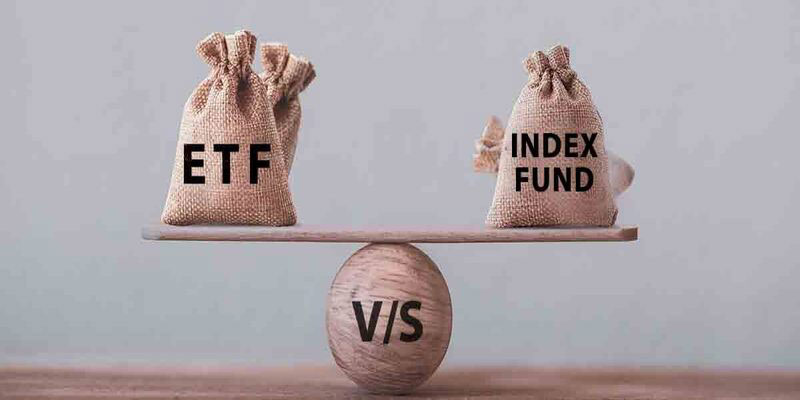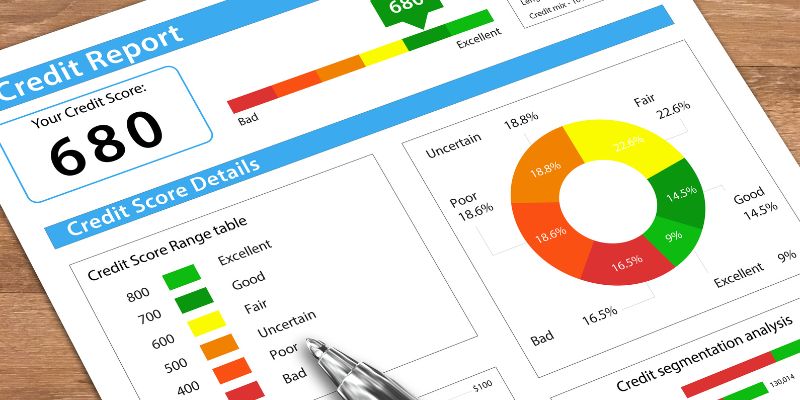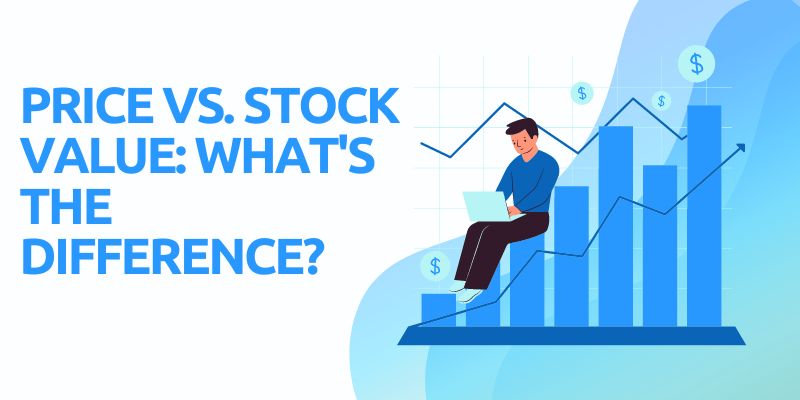Reasons to Avoid Index Funds
Financial advisors heavily promote index funds, but many investors may need to realize that there could be drawbacks to them. Before committing your hard-earned money, understanding the potential risks associated with investing in index funds is essential.
In this blog post, we will explore why you should think twice about blindly investing in indexed funds and provide some alternatives that better suit you if avoiding these pitfalls is a priority. So stick around and read on for an informed discussion about the potential challenges of index Funds!
Understand the fees associated with index funds before investing in them:
Index funds can be a great way to diversify your investments and reap the benefits of the stock market at a lower cost. However, it’s important to understand the fees associated with index funds before committing your money to them. Index fund fees can include management fees, administrative expenses, and other costs such as brokerage commissions.
Management fees are typically based on a percentage of assets under management, ranging from 0.05% to 1%. Administrative expenses are often lumped in with the management fee but may include legal or accounting costs that must be paid out-of-pocket.
Brokerage commissions are another additional cost when investing in index funds; these will vary depending on where you purchase the fund from but should still be considered. Additionally, many index funds require a minimum investment amount and may charge taxes if you sell your shares too soon after purchase.
Examine other low-risk investments that may offer better returns than an index fund:
When it comes to investing, many other low-risk alternatives offer better returns than an index fund. Certificates of deposit (CDs) and money market accounts provide a safe place to store your money while earning a return in the form of interest. CDs typically offer higher interest rates than savings accounts and require a minimum investment amount; these investments are best for long-term goals where you only need access to the principal balance in maturity.
Money market accounts also offer higher interest rates than traditional savings accounts but tend to require greater minimum balances and come with limited liquidity features such as short withdrawal waiting periods or maximum contribution amounts per month.
Bonds can be another option for investors looking for steady income streams over time; though their returns tend to be lower than stocks, they provide a safe and reliable source of income. Finally, annuities are another option for investors seeking a steady income stream but with the added benefit of tax deferment on your earnings.
Be aware of taxes that can limit your return on investment from an index fund:
Many investors may need to be made aware that taxes can significantly impact their return from investing in index funds. Depending on your tax bracket, capital gains taxes, dividend taxes, and other fees related to owning an index fund can significantly reduce the money you make from investing in them. It’s important to understand how taxes work when investing in index funds so that you don’t lose more than what you put in!
Capital gains impact how much money you make when selling an investment. When it comes to index funds, if the value increases since you purchased the fund, then any profits made upon sale will be subject to capital gains taxation. The rate of taxation depends on your income level and length of ownership; short-term gains (ones held for less than a year) will be taxed at your ordinary income rate, while long-term gains (over a year) are typically taxed at 15-20%.
Dividend taxes are another way that the government taxes investments. They are applied to dividends received from stocks or funds within an index fund and can vary depending on the type of dividend received. Qualified dividends tend to be taxed at lower rates than nonqualified dividends, so it’s important to understand how each works when considering investing in index funds. Other fees may be associated with owning an index fund, such as mutual fund loads or redemption fees, that should also be considered before investing.
Consider the lack of customization when choosing an index fund:
When investing in index funds, one of the major drawbacks is the need for more customization available. Since a fund's holdings are predetermined and follow a pre-set benchmark, investors may find themselves missing out on unique opportunities that come up in the market. Index funds also don't provide investors with flexibility, such as the ability to choose specific stocks or industries they wish to invest in; instead, they will be stuck with whatever components the fund holds.
From this perspective, it can be difficult to build an appropriate portfolio for your individual goals if you want more control over what stocks you hold. Additionally, since many index funds track entire exchanges or broad markets like S&P 500 indexes, it can be difficult to diversify your investments into different asset classes without purchasing multiple funds.
Analyze the underlying funds inside a given index fund for potential risk exposure:
When investing in index funds, it is essential to understand the potential underlying risk exposure from the individual assets inside the fund. As with any investment, diversification is key to mitigating risks and maximizing returns. However, since an index fund holds a basket of predetermined assets, investors may need help to properly assess the fund's overall risk profile if they analyze each asset individually.
Understanding what kinds of securities are held within an index fund and how those can affect your return on investment is important. For example, suppose you are invested in a US-focused S&P 500 index fund. In that case, you will likely be exposed to fluctuations in sectors such as technology and healthcare that might not fit into your portfolio goals or risk tolerance.
Similarly, suppose you are investing in a sector-specific index fund such as the Utilities Select Sector SPDR Fund (XLU). In that case, you will be exposed to the volatility of that particular sector which may not be suitable for all investors.
FAQs
Q: What Are Some Alternatives To Index Funds?
A: Investors have various options that may be better suited than index funds. Mutual Funds, ETFs, and Hedge Funds offer different levels of diversification and can provide greater returns in the long run. Additionally, stocks and bonds are viable alternatives for those seeking more direct investment control. Ultimately, it is important to do your research into the various investment vehicles you're considering before committing your money so that you can make an informed decision about what’s best for you.
Q: How Can I Research Investment Options?
A: Researching investment options can be overwhelming, but it is essential in helping you make an informed decision. Firstly, do some basic reading on investing to better understand what types of investments are available and the associated risks and rewards. You should then review specific funds by reviewing their performance records and management fees. Finally, consider speaking to a financial advisor or investing expert for more advice tailored to your situation.
Q: What Should I Keep In Mind When Considering Indexed Funds?
A: Investing in index funds can be a great way to diversify your portfolio, but it’s important to remember that the stock market is volatile, and the fund could suffer losses if the market dips. Additionally, fees associated with indexed funds can be high, which could eat up returns over time. Lastly, minimum investments for indexed funds may be much higher than other investments, so you should ensure you have enough money to meet them before taking the plunge. With these points considered, investors should use caution when considering investing in index funds and may wish to explore alternative options.
Conclusion
Index funds can be a great choice for many investors, as they offer diversification and potentially higher returns than traditional investments. However, it’s important to consider the risks of investing in indexed funds before committing your money.
Analyzing the underlying assets of an index fund for risk exposure, understanding different investment options, and researching fees are all important considerations when considering investing in index funds. With the right approach and research, you can ensure that index funds are the right fit for your goals and financial situation.
On this page
Understand the fees associated with index funds before investing in them: Examine other low-risk investments that may offer better returns than an index fund: Be aware of taxes that can limit your return on investment from an index fund: Consider the lack of customization when choosing an index fund: Analyze the underlying funds inside a given index fund for potential risk exposure: FAQs Q: What Are Some Alternatives To Index Funds? Q: How Can I Research Investment Options? Q: What Should I Keep In Mind When Considering Indexed Funds? Conclusion
By Rick Novak : Dec 29, 2024
Things to Know Before Buying a Short Sale on a House
Check the property's value and the home for damage before buying shop board shorts on sale. Short sales may also require quick action.
Read More
6588

By Rick Novak : Nov 03, 2024
Unlocking the Path to Credit Repair
Understand the detailed process to eliminate a charge-off from your credit report and boost your credit score properly.
Read More
1829

By Rick Novak : Sep 30, 2024
How Bonds Affect the Stock Market: Everything You Need to Know
This article provides a detailed overview of how bonds affect the stock market and their mutual relationship
Read More
14720

By Rick Novak : Oct 26, 2024
How to Tackle Your Student Loans Without Stress: An Ultimate Guide
Do you want to discover effective strategies for managing your student loans? Give this article a read to learn how to plan your repayments, explore refinancing options, and avoid default.
Read More
630

By Kelly Walker : Sep 11, 2024
An Easy Guide To Postdated Checks: What You Need To Know
Learn about postdated checks: what they are, how they work, legal issues, banking, and alternatives
Read More
3409

By Rick Novak : Oct 10, 2024
Explaining Trailing Stop Loss in Day Trading
How a trailing stop loss can help you in day trading. Learn how it protects your profits and reduces losses in fast-moving markets.
Read More
9281

By John Davis : May 18, 2025
What Are The Key Differences Between Exchange-Traded Funds (ETFs) And Index Funds?
Exchange-traded funds (ETFs) and index funds allow investors to purchase a diversified portfolio of securities. While index funds are mutual funds meant to passively track a specific market index, exchange-traded funds (ETFs) are traded like individual stocks. They can be managed either passively or aggressively. ETFs typically have lower entry thresholds than index funds, and ETFs change more frequently.
Read More
19996

By Rick Novak : Oct 29, 2024
Crossing the Financial Bridge: A Comprehensive Bridge Loan Guide
Explore bridge loans: learn types, how they work, and examples. Discover how they bridge financial gaps effectively.
Read More
17722

By Kelly Walker : Dec 04, 2024
Understanding the Expenses of Nursing Home Care
Get an estimate of the typical cost for nursing home care now and know about the expenses in senior living facilities.
Read More
9781

By Rick Novak : Dec 05, 2024
Trading with Momentum: An Overview
On paper, momentum investing is less of a conscious strategy and more of a reactive response to market news. The traditional proverb on Wall Street that you should "buy cheap and sell high" runs opposite to the approach of selling underperforming companies and purchasing winning ones. This technique, which may appear enticing at first, is counterproductive
Read More
11400

By Rick Novak : Nov 29, 2024
7 Proven Strategies for Maintaining A Good Credit Rating
Secure your financial future by keeping a healthy credit score. Read our 7 strategies and start today
Read More
7581

By Kelly Walker : Dec 17, 2024
Price vs. Stock Value: What's the Difference?
The price of the stock is what you actually pay for it. However, value is an intrinsic feature of an asset.
Read More
3688
